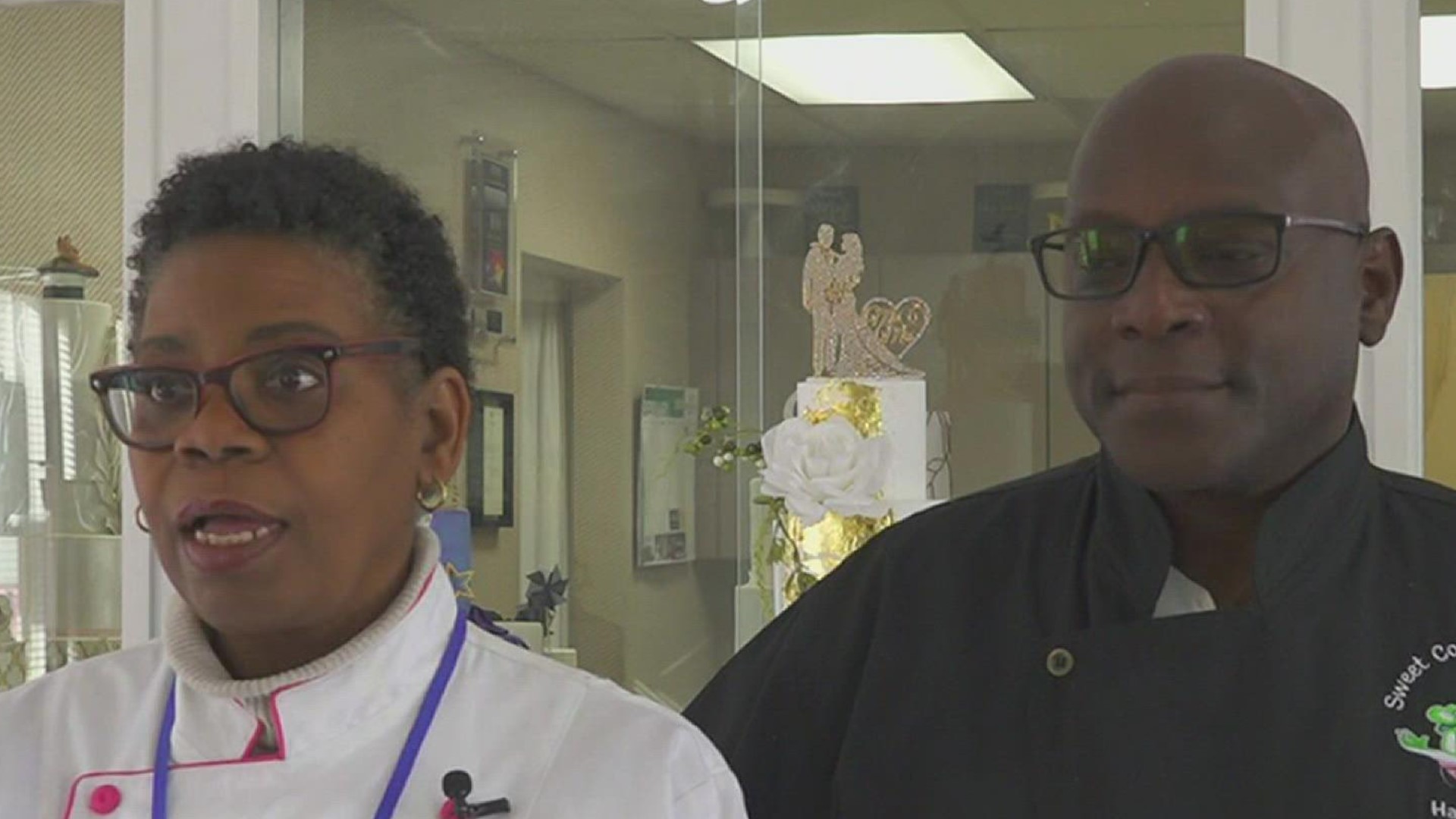HARRISBURG, Pa. — The ongoing COVID-19 pandemic has put pressure on many small businesses, testing the power of owners to withstand the hardships. However, many Black business owners in central Pennsylvania are still standing strong and filled with pride, especially during Black History Month.
"To be a Black-owned business in this day in time, and not one who just started out, we do have some longevity," said dessert store owner Darmayne Robertson. "It does feel good."
Darmayne and her husband Willard Robertson have owned Sweet Confections Cakes in Harrisburg since 2005. They moved to a new location just three years ago.
The two have been in the pastry business for a total of 28 years. Although they both have experienced their fair share of challenges in that time, a global pandemic brought them an extra element of surprise and struggle.
"Oh it was rough," said Willard Robertson. "...We had a hard time. We had to make a lot of adjustments."
According to the Robertsons, pandemic-induced inflation tripled the cost of some of their key ingredients. Plus, the revenue their business generated from events and parties dwindled away due to health protocols and city shutdowns.
"Events were a lot smaller," said Darmayne Robertson. "The larger weddings were no longer happening so we really took advantage of making sure that we catered to our clients. We gave them what they needed, and we were doing something that could bring our employees back to work as well."
The couple says it took great strength and togetherness to endure the hardships. From diving into their savings and accepting grants provided on the state level, they were able to stay open and still have an ambitious mindset. However, a great deal of support from the community helped them fiscally and mentally.
"The only thing you can do is really hope and pray and just keep chugging along," said Darmayne Robertson.
Austin Qualls, or "Coach Q," shares the same mindset. Qualls, another Harrisburg entrepreneur, owns Rogue Sol Training.
"It didn't matter what color I was," Qualls said. "I was going to get it done. I want to empower anybody and everybody to do what they love to do, be passionate about it, and go forward."
Qualls officially opened the doors of his fitness studio in May of 2021 but had received the LLC for the business in October of 2020.
Opening a fitness studio was always a dream for Coach Q, but nothing he had actively planned for pre-pandemic. He says his inspiration to officially open his business came from seeing the pandemic's effect on people; he learned those who were most susceptible to the virus were those who suffered from various underlying issues, including a lack of exercise.
"The people that were suffering the most were older people, or people who were obese, had chronic illnesses, [or] chronic diseases," he said. "How do you prevent those things? You got to work out."
During this year's Black History Month, Qualls hopes everyone can see their potential. He says while we must recognize the obstacles, those who may not have been seen or appreciated can still rise above them.
"It's not about being Black—it's the struggle that we go through because we're Black," said Qualls. "It shouldn't be because I'm Black, I struggle. The more we educate, the more skills we possess, the more valuable we are. And guess what? You'll make it into a lot of those doors regardless of your skin tone."
To achieve this positive mentality for oneself, Qualls lays out three parts.
First is finding reliable education whether it be in other people or from inanimate resources. Next is observation.
"Be very observant of your surroundings [and] of the people around you," he said. "That'll change the game for you. People give you a lot of information by the conversations you have, but if you're just listening to people you're not actually understanding what they're saying. If you're can't comprehend what they're saying, if you're not asking the questions, then you're going to lose every time."
Finally, Qualls stresses the value of consistency. Even if an individual does not have access to education or resources, that person can set realistic goals to improve their wellbeing and take care of themselves every day.

